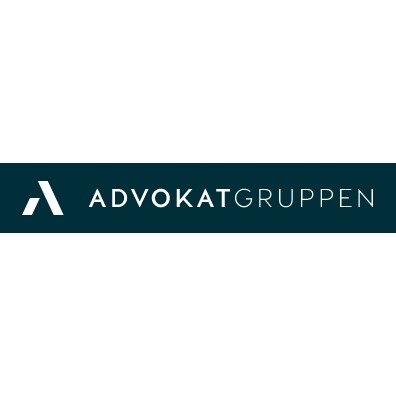Best Nonprofit & Charitable Organizations Lawyers in Denmark
Share your needs with us, get contacted by law firms.
Free. Takes 2 min.
Or refine your search by selecting a city:
List of the best lawyers in Denmark
About Nonprofit & Charitable Organizations Law in Denmark
Nonprofit and charitable organizations in Denmark play a vital role in society, contributing to the cultural, educational, health, and social welfare sectors. These organizations range from small community-based groups to large international NGOs. Danish law recognizes several types of nonprofit entities, including associations, foundations, and informal networks. These organizations are primarily regulated by specific laws that address their formation, governance, taxation, and dissolution, ensuring transparency and accountability in their operations.
Why You May Need a Lawyer
There are several scenarios where legal assistance might be necessary for nonprofit and charitable organizations in Denmark:
- Formation and Registration: Establishing a nonprofit involves navigating legal requirements, drafting bylaws, and completing registration processes.
- Governance and Compliance: Legal experts can assist with understanding and implementing governance rules, including board responsibilities and reporting obligations.
- Taxation Issues: Nonprofits need guidance on tax exemptions, VAT, and donations to ensure compliance with Danish tax laws.
- Employment and Volunteer Agreements: Crafting legally sound contracts and agreements with employees, volunteers, and third parties is crucial.
- Dispute Resolution: Lawyers can offer mediation and litigation support when disputes arise within the organization or with external parties.
Local Laws Overview
Danish nonprofit law is primarily governed by the Associations Act and the Foundations Act. Key aspects include:
- Associations: Must have a governance structure, clear objectives, and a set of bylaws. They are typically not required to register unless they seek legal status or public funding.
- Foundations: Require registration and must adhere to strict governance and financial reporting standards. They often benefit from tax exemptions but face more regulatory scrutiny.
- Charitable Status: Organizations must meet criteria regarding public benefit objectives to receive tax exemptions and other benefits.
- Financial Reporting: Transparency in financial records is mandated, with larger entities subject to annual audits.
- General Data Protection Regulation (GDPR): Compliance with GDPR standards is essential for handling personal data.
Frequently Asked Questions
What is the difference between an association and a foundation in Denmark?
Associations are member-based organizations with a focus on shared goals or interests, while foundations are asset-based entities pursuing specific objectives, usually with no members and a board of trustees.
Do all nonprofit organizations in Denmark need to register?
No, only those seeking certain legal statuses, tax advantages, or public funding need to register. However, registration enhances legal protection and credibility.
How can a nonprofit attain charitable status?
Organizations must apply to the Danish Tax Agency, demonstrating that their purpose aligns with public benefit criteria as outlined in tax laws.
Are there any tax benefits for donors to nonprofits?
Yes, donations to approved charitable organizations are tax-deductible, encouraging philanthropic contributions.
What are the governance requirements for a Danish foundation?
Foundations are required to have a board of directors and comply with detailed financial reporting and auditing requirements.
How can a nonprofit ensure compliance with GDPR?
By implementing data protection policies, conducting regular data audits, and ensuring transparency in how personal data is collected and used.
Can a nonprofit hire employees or rely on volunteers?
Yes, nonprofits can hire employees and engage volunteers. It's important to follow employment laws and draft clear volunteer agreements.
What happens if a nonprofit fails to comply with regulations?
Noncompliance can result in penalties, loss of tax-exempt status, and reputational damage, emphasizing the importance of legal and financial diligence.
Do nonprofits in Denmark pay VAT?
Nonprofits may be VAT-exempt if their activities are educational, social, or charitable in nature. However, VAT obligations can arise depending on additional business activities.
Is it possible to convert an existing business into a nonprofit?
Yes, but it requires changing the organizational structure and objectives to align with nonprofit laws, often needing legal assistance to navigate the process.
Additional Resources
Here are some useful resources for those seeking legal advice regarding nonprofits in Denmark:
- The Danish Business Authority (Erhvervsstyrelsen): Provides guidance on starting and managing businesses and associations.
- The Danish Tax Agency (SKAT): Offers information on taxation for nonprofits and charitable organizations.
- Copenhagen Centre for Nonprofit Law: Provides legal insights and support for charitable initiatives and NGOs.
- The Central Business Register (CVR): The official platform for registration of businesses and foundations.
Next Steps
If you need legal assistance with a nonprofit or charitable organization in Denmark, consider the following steps:
- Identify Your Needs: Determine what specific legal issues or questions you have about your organization.
- Consult a Specialist: Seek out lawyers or legal firms with expertise in nonprofit law to provide tailored advice.
- Gather Documentation: Prepare any organizational documents, financial records, and previous communications for your legal consultation.
- Plan for Compliance: Work with your legal advisor to draft a compliance plan ensuring all regulatory requirements are met.
- Ongoing Support: Consider establishing a long-term relationship with a legal professional for continued guidance and support.
By following these steps, you can ensure that your nonprofit organization operates within the legal framework of Denmark, enabling you to focus on your mission effectively.
Lawzana helps you find the best lawyers and law firms in Denmark through a curated and pre-screened list of qualified legal professionals. Our platform offers rankings and detailed profiles of attorneys and law firms, allowing you to compare based on practice areas, including Nonprofit & Charitable Organizations, experience, and client feedback.
Each profile includes a description of the firm's areas of practice, client reviews, team members and partners, year of establishment, spoken languages, office locations, contact information, social media presence, and any published articles or resources. Most firms on our platform speak English and are experienced in both local and international legal matters.
Get a quote from top-rated law firms in Denmark — quickly, securely, and without unnecessary hassle.
Disclaimer:
The information provided on this page is for general informational purposes only and does not constitute legal advice. While we strive to ensure the accuracy and relevance of the content, legal information may change over time, and interpretations of the law can vary. You should always consult with a qualified legal professional for advice specific to your situation.
We disclaim all liability for actions taken or not taken based on the content of this page. If you believe any information is incorrect or outdated, please contact us, and we will review and update it where appropriate.
Browse nonprofit & charitable organizations law firms by city in Denmark
Refine your search by selecting a city.















